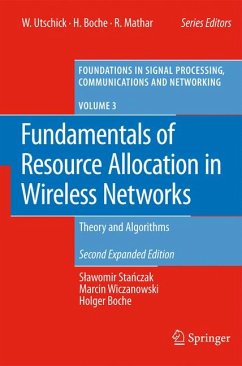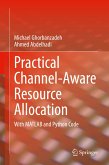This monograph demonstrates that these emerging applications and directions require fundamental understanding on how to design and control wireless networks that lies far beyond what the currently existing theory can provide. It is shown that mathematics is the key technology to cope with central technical problems in the design of wireless networks since the complexity of the problem simply precludes the use of engineering common sense alone to identify good solutions.
The main objective of this book is to provide tools for better understanding the fundamental tradeoffs and interdependencies in wireless networks, with the goal of designing resource allocation strategies that exploit these interdependencies to achieve significant performance gains. The book consists of three largely independent parts: theory, applications and appendices. The latter contain foundational aspects to make the book more understandable to readers who are not familiar with some basic concepts and results from linear algebra and convex analysis.
Dieser Download kann aus rechtlichen Gründen nur mit Rechnungsadresse in A, B, BG, CY, CZ, D, DK, EW, E, FIN, F, GR, HR, H, IRL, I, LT, L, LR, M, NL, PL, P, R, S, SLO, SK ausgeliefert werden.









